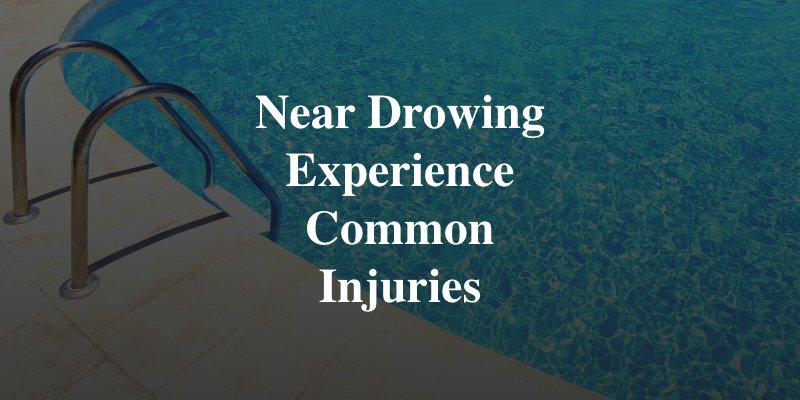 Near-drowning is a term used to describe surviving a situation where suffocation has occurred as a result of being submerged or immersed in water (or other liquid). This event doesn’t result in fatality but can still lead to severe complications due respiratory issues and a lack of oxygen reaching the brain. In some cases, those who experience near drowning have no lasting effects; however, this varies widely between individuals.
Near-drowning is a term used to describe surviving a situation where suffocation has occurred as a result of being submerged or immersed in water (or other liquid). This event doesn’t result in fatality but can still lead to severe complications due respiratory issues and a lack of oxygen reaching the brain. In some cases, those who experience near drowning have no lasting effects; however, this varies widely between individuals.
This can happen for a variety of reasons, such as losing consciousness due to an accident, drinking alcohol or using drugs before entering the water, or simply lacking sufficient swimming skills. Near-drowning experiences can happen to anyone, regardless of age or swimming ability.
The Physical and Emotional Aftermath of a Near Drowning
Many distressing symptoms can result from being victims of a near-drowning experience, some of which may require immediate medical attention. Possible physical signs of such an incident include:
- Abdominal distention
- Bluish skin around the lips and face
- Chest pain
- Cold and pale skin
- Confusion
- Coughing with pink frothy sputum
- Irritability
- Lethargy
- Restlessness
- Shallow or gasping breaths
- Unconsciousness
- Vomiting
Immediate Physical Injuries
When a person almost drowns, their body goes through a series of distressing events. Here are some immediate injuries that might occur:
- Aspiration pneumonia: This happens when water enters the lungs, causing inflammation and infection. Symptoms include shortness of breath, fever, and bloody or frothy sputum.
- Acute respiratory distress syndrome (ARDS): This condition can occur when the lungs are severely damaged. ARDS can cause difficulty breathing, chest pain, and in severe cases, organ failure.
- Brain damage: Lack of oxygen during a near-drowning event can lead to a traumatic brain injury, which might result in long-term cognitive and motor impairments.
Long-Term Consequences: The Emotional Impact
A near-drowning experience can also leave a person traumatized, causing substantial emotional and psychological distress. Typical psychological reactions may involve anxiety, depression, or even post-traumatic stress disorder (PTSD).
Survivors may find themselves afraid to be near water, have difficulty sleeping, or struggle to maintain normal relationships. Given the wide-ranging and persistent consequences of a near-drowning experience, it’s vital for affected individuals to seek proper medical, legal, and emotional support.
Preventing and Handling Near-Drowning Situations
To minimize the risk of near-drowning and its devastating consequences, consider the following precautions and rescue tips:
- Never attempt a swimming rescue yourself unless you are trained in water rescue. Untrained rescuers can put both themselves and the victim in more danger.
- Avoid entering rough or turbulent water that may put your life at risk.
- Do not go on ice to try rescuing someone; instead, call for professional help.
- Reach out to the person with your arm or an extended object if possible; this can help to pull them to safety without putting yourself at risk.
- Do not perform the Heimlich maneuver unless repeated attempts to clear the airway and rescue breathing have failed.
The Role of a Personal Injury Lawyer
A personal injury lawyer plays a crucial role when it comes to navigating the legal aftermath of a near-drowning experience. Here’s how they can help:
Assessing The Case: An experienced attorney will evaluate the details of the incident, determine fault, and establish whether negligence or oversight by another party was involved.
Gathering Evidence: They’ll conduct an exhaustive investigation to gather pertinent evidence – for example, any pool safety violations if the accident occurred at a public swimming pool.
Negotiating With Other Parties: If there were other parties at fault such as swimming pool owners/operators (private or public), lifeguards etc., your attorney would negotiate with their insurance companies on your behalf in order to secure fair compensation for your injuries.
While financial compensation cannot undo the physical and emotional harm caused by a near-drowning experience, it can provide valuable resources for ongoing treatment and support. Our experienced Fresno personal injury lawyer will work diligently to ensure you receive the justice and fair compensation you deserve, helping to alleviate some of the financial and psychological stress.
If you need help, contact us today to schedule a free consultation.

